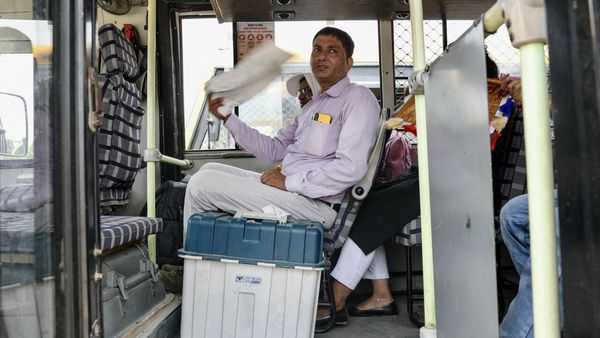
As crumbling schools and insecure prisons help to hammer the final nails into this government’s coffin, the focus inevitably turns to what happens next. A vigorous debate is now being played out between those who argue that anything is better than the corruption and neglect of this Conservative government and those who believe that those who have prospered under 13 years of Tory rule should start to contribute a greater proportion of their wealth for the wider good.
Larry Elliott is right (Councils going bust, schools crumbling, the NHS in crisis: the answer is more tax, 7 September). Just a change of personnel in government alone will not bring about the radical changes people are desperate for. The fundamental question remains of whether Labour, under Keir Starmer’s leadership, has the vision and courage to introduce a fairer distribution of wealth to fund heavy investment in our public services and start to redress the years of Conservative slash and burn policies, or whether it maintains its current trajectory and achieves power but simply treads water.
Peter Riddle
Wirksworth, Derbyshire
• Larry Elliott says that: “Although taxes as a share of national income are at their highest in 70 years, they will need to be higher.” Maybe, but what needs to be looked at first is the amount of taxpayers’ money that is spent on subsidies to privatised and other industries and their profits – for example, subsidies to privatised rail operators and to fossil fuel companies, the profits of outsourced private contractors to the NHS, and the inflated salaries paid to academy trust CEOs.
If just some of these overheads could be eliminated, more of our taxes could be spent directly on currently impoverished public services. I can’t see electors who struggled years ago and now own their own homes eagerly voting for a wealth tax, when they see those taxes going to line the pockets of rail franchise owners and fossil fuel company bosses.
Nadine Grieve
London
• Rafael Behr is right: we want and need more “state”, not less (The Tory mission has failed: British people don’t want a smaller state, 6 September). The Conservatives have used trickle-down economics as the intellectual justification of for their “shrink the state” ideology, with low taxes and deregulation as their key policies. But it is time to recognise that the price of these measures has been huge harm to the very availability of the factors of production that the polices were supposed to encourage.
A failing NHS and education cuts mean that we are far less likely to have a healthy and well-educated workforce. Brexit did not help either; police and criminal justice cuts add huge burdens to business; even problems with passports, visas and driving licences hinder business activity; poor public transport means many who would like to work cannot, as does a failed social care system and hugely expensive childcare; and harmonised regulations make production, imports and exports so much easier. And as for leaving the “failed economic model” of the highly taxed and regulated EU, it should be noted that our economic growth from 1973 to 2016 outpaced that of even the US.
It is time to recognise that a well-funded state and good regulation is crucial to facilitating the supply of factors of production, and hence to the kind of healthy economic growth that will actually reduce the tax burden in the longer term.
Adrian Cosker
Hitchin, Hertfordshire







